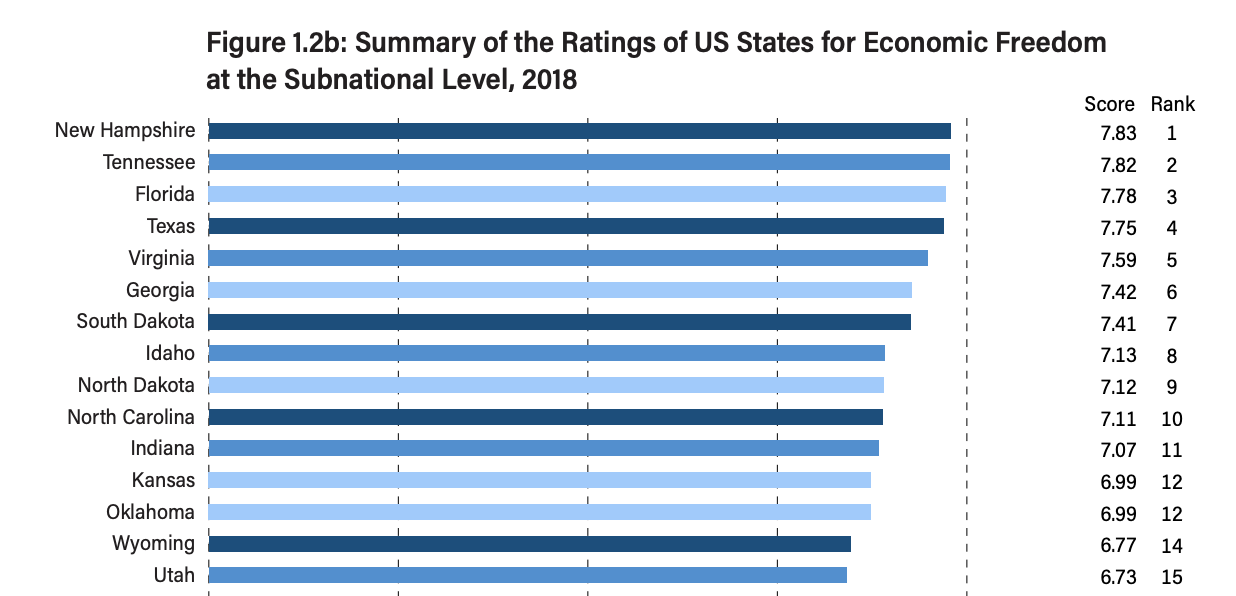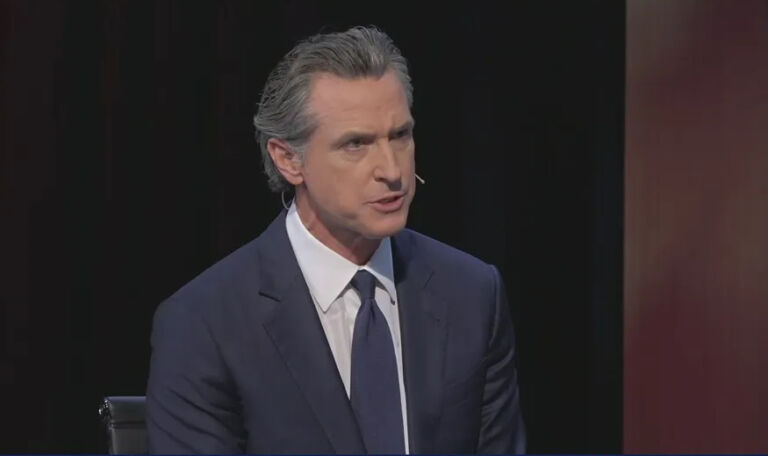North Carolina has made another step toward greater economic freedom according to new research from the Fraser Institute, moving to 10th place compared to her 11th place position in 2020. To give you a little broader context, The Economic Freedom of North America 2021 is an annual report published by the Fraser Institute, a transnational free-market think tank that has measured economic freedom in countries and states for decades.
How does this report define economic freedom? According to the Fraser Institute, “Individuals have economic freedom when (a) property they acquire without the use of force, fraud, or theft is protected from physical invasions by others and (b) they are free to use, exchange, or give their property as long as their actions do not violate the identical rights of others. Thus, an index of economic freedom should measure the extent to which rightly acquired property is protected and individuals are engaged in voluntary transactions.”
The three areas North Carolina was assessed on were government spending, taxes, and labor market freedom.

So, how did North Carolina move toward greater economic freedom this year? Broadly speaking, if we consider the three areas mentioned above, we can see that our state made gains in each of them.
Thanks to fiscally conservative policies at the state legislature, our government’s spending habits have been restrained.
1. Government spending – Thanks to fiscally conservative policies at the state legislature, our government’s spending habits have been restrained. States cannot simply print more money, which means they must either live within their means today or borrow from tomorrow’s taxpayers. Our state government has reined in spending, which led to us paying off $2.75 billion in federal unemployment debt and the creation of a multibillion-dollar “rainy day fund” to help us weather economic storms.
2. Taxes – In 2010, North Carolina was home to one of the worst business tax climates in the nation, and our state’s unemployment rate was a full percentage point above the national average. Unchecked and irresponsible economic policies enacted by a legislature that had played too fast and loose with taxpayer dollars led to exceedingly high unfunded liabilities and unfavorable conditions for businesses.
It has been 11 years since that time, and we’ve made a major shift away from progressive economic policies, which is why we’re now one of the top states in which to do business and North Carolinians are able to keep more of their hard-earned money. And even more exciting, as of last week, we are on the cusp of yet another major tax reform, thanks to a General Fund budget just passed by the General Assembly and signed by Gov. Roy Cooper. According to fiscal policy analyst Paige Terryberry, this budget adds no new debt, reduces the personal income tax rate, begins to phase out the corporate income tax rate, and rejects the massive tax burden that would have come with expanding Medicaid.
3. Labor market freedom – By resisting calls to increase the state’s minimum wage, North Carolina has stayed out of the way of new workforce entrants who would be effectively priced out of the labor market. In addition to giving workers and employers freedom to negotiate wages they both believe to be fair, North Carolina also protects employees from being forced to join a union.
Next year, our state will celebrate its 75th Right to Work anniversary, which means that individuals in private businesses are allowed to negotiate their pay as they see fit, absent forced union interference. Beyond these freedom-focused protections for workers and business owners, Locke continues to champion the right to earn a living for North Carolinians. That means challenging silly and burdensome occupational licensing restrictions that keep far too many men and women out of the workforce.
As you can see, North Carolina has earned a spot on this top 10 list. However, we know that this promising position isn’t guaranteed. It’s only because of vigilant voters like you, who are willing to hold elected officials accountable, that we can continue to make North Carolina a better state for all those who live here.
I’m hopeful about the future of our state because I have seen firsthand how much pride and care North Carolinians invest in their communities.
And that’s the unspoken crux of these rankings. We know that economic freedom matters because people matter. If we care about the ability of men and women to provide beyond subsistence level for themselves and their families and want life expectancy to continue to increase and child mortality to decrease, we will demand economic freedom. If we want healthy democratic institutions with greater resistance to corruption, as well as greater civil and political liberty, we must begin with economic freedom.
I’m hopeful about the future of our state because I have seen firsthand how much pride and care North Carolinians invest in their communities. Whether it’s on the coast in Kill Devil Hills or the mountains near West Jefferson, our state continues to show the nation what healthy, committed, free-market policies can do for individuals, families, and communities.

